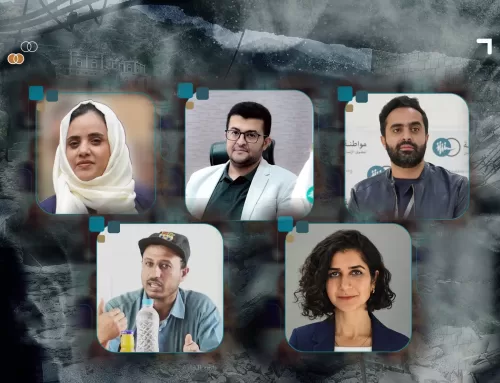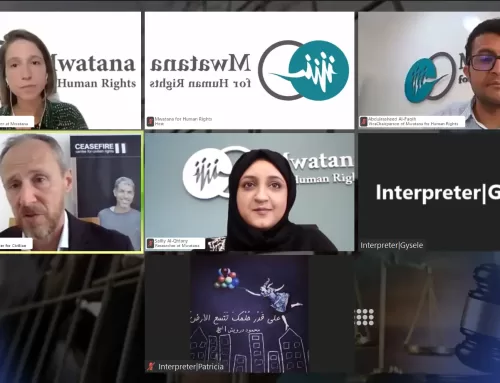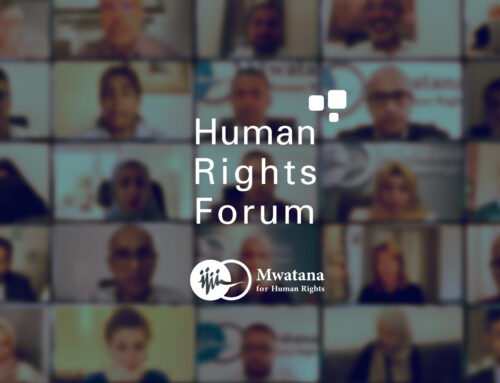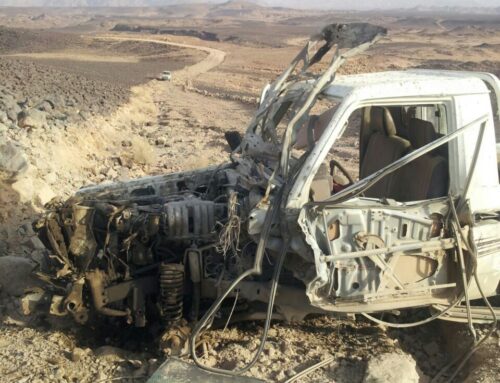April 28, 2020
Chairman Deutch, Ranking Member Wilson, distinguished Subcommittee Members,
I greet you from Yemen and thank you for providing me another opportunity to speak with you about the war and crisis in my country. My name is Radhya Almutawakel, and I am the Chairperson of Mwatana for Human Rights.
Mwatana is defending human rights and trying to end abuses in Yemen. Our team is documenting human rights violations by all parties to the conflict, in almost all of Yemen’s governorates. We are providing legal support to those detained or disappeared by all parties to the conflict, and have helped in releasing dozens of detainees all over Yemen.
At this difficult time, our hearts go out to those in the United States and across the world in the global battle against COVID-19. We in Yemen know similar hardships, because we have lived with them for more than five years, as the war took away our friends and families, destroyed our health system, and made it impossible for so many of us to travel, to learn, and to work. COVID-19 is taking some steps that the war in Yemen has been taking for five years.
At a time when countries around the world are scrambling to respond to COVID-19 and ensure that hospitals can treat all patients, Yemen has entered the sixth year of a war that has destroyed our healthcare system.
Between 2015 and 2018, Mwatana documented 120 attacks on health facilities and medical personnel, by all parties to the conflict, across 20 of Yemen’s 22 governorates. In a report with Physicians for Human Rights, we illustrated how these attacks contributed to the disastrous humanitarian situation in Yemen.
Our report found that the coalition led by Saudi Arabia and the United Arab Emirates –armed by the US, the UK, and EU countries – is responsible for destroying and damaging Yemen’s health facilities through airstrikes. Houthis, as well as other armed groups loyal to the Yemeni government and the coalition, also have damaged and destroyed health facilities with indiscriminate shelling, and occupied medical facilities. All sides to the conflict have killed medical workers.
This destruction contributed to a catastrophic situation. Yemenis have suffered a record outbreak of cholera, an easily preventable disease. Now, our worst fear is another epidemic. Although COVID-19 is novel to the entire world, the disease will be specifically deadly for countries in conflict, like Yemen.
On April 10, the first COVID-19 case was confirmed in Yemen. Although there have not yet been official announcements of other cases since, Yemenis continue to die every day because of the war. They are dying in airstrikes and shelling. They are dying of preventable diseases. They are dying of hunger and much more.
I urge Congress to take action to help end civilian suffering in Yemen, not only due to the devastating impact COVID-19 will have on my country, but because of the devastation that has already occurred as a result of this unnecessary war that has been allowed to go on too long.
There are three things the US could do, right now, to make a real difference.
First, promote accountability and redress for abuses.
To end the cycles of violence in Yemen, the warring parties must know they will be held accountable for violations, and will have to provide redress to their civilian victims.
Second, stop fueling the war. End US military support to Saudi Arabia and the UAE, and push for a political agreement to end the conflict.
The collapse of the Yemeni state and the empowerment of armed groups all over Yemen is the biggest threat to Yemen’s future. Yemenis need a political agreement that helps them to achieve their continued dream of a state based on the rule of law and democracy.
This can be achieved only through a real political agreement between all parties to the conflict, which requires real US pressure on your allies, and an end to US arms sales and other military support.
I believe action by Congress played an essential role in achieving the Stockholm agreement in 2018, the partial UAE withdrawal from active combat, and the willingness of Saudi Arabia to negotiate. But this pressure must continue.
Third: address the health, humanitarian, and economic crisis in Yemen.
The warring parties have weaponized Yemen’s food and economy. Yemeni civil servants, including some health workers, have not been paid salaries for nearly two years.. Even given that context, the US Government recently decided to cut your humanitarian assistance to Yemen, in response to Houthi aid interference. An end to this interference is crucial. But the US decision to withdraw humanitarian funding for Yemen at a time of our greatest need risks creating an escalating catastrophe; it will not punish the Houthis, it will punish Yemen’s already vulnerable civilians.
Stopping COVID-19 will require doctors and scientists working together worldwide. Stopping the war and the humanitarian crisis in Yemen needs only influential decision-makers, like this Congress, to follow your consciences and act with strong will. You can help end this crisis, if you choose to do so.
Radhya Almutawakel 28 April 2020,






